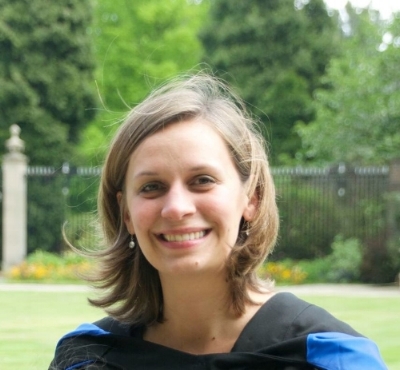
Dr. Mick Deneckere
1) What are your research interests?
Throughout my studies I have been fascinated by the traditions that developed as a result of the increased contact between Japan and Europe, when, after a 250- year seclusion policy, Japan opened its borders to international trade in the mid- nineteenth century. My MA dissertation in Leuven and my MPhil and PhD dissertations in East Asian Studies at Cambridge have all focused on nineteenth- and early twentieth-century Japanese intellectual history. They address various aspects of the encounter between Japan’s religious and intellectual traditions on the one hand, and Western thought and Christianity on the other, and discuss new traditions and notions that developed as a result of this encounter. My PhD, in particular, explored the intellectual legacy of the Japanese True Pure Land Buddhist Shimaji Mokurai (1838- 1911), who is credited with introducing the concepts of “separation of religion and state” and “religious freedom” to Japan after a study trip to Europe. My current postdoctoral research builds further on this theme of the relationship between religion and state. It looks at the impact of religion on the modernisation of Japan, with a particular focus on the role of Buddhist thinkers in the intellectual movement of the 1870-80s known as the Japanese Enlightenment.
2) What is your current research project about?
In contrast to the traditional narrative that Buddhism was transformed under the influence of Japan’s modernisation in the early Meiji period (1870s-1880s), my current research project considers Buddhism as an active partner in Japan’s modernising process. In 1872, when foreign travel was still mostly the prerogative of diplomats and government-sponsored students, two Japanese Buddhist missions left for Europe to study the link between Christianity and Western civilisation. Back in Japan, members of the missions actively participated in the Japanese “Enlightenment Movement” through journal publication and the establishment of societies, in response to the intellectual activities of secular thinkers. The investigation of these Buddhist ventures forms the basis of my current research project. The suppression of Buddhism in favour of a Shinto-based ideology propelled Buddhist thinkers into playing a prominent role in developing a concept of religion that suited a “civilised” Japan. In their attempt to align Buddhism with this new concept, they developed notions that supported the state’s project to become “a rich country with a strong army”, both in terms of social ideas that sought to stimulate the people’s productivity, and of views that were supportive of Japan’s militaristic expansionism. By addressing these understudied intellectual developments, the project challenges the narrative of a weakened Buddhism, reconsiders its agency in early Meiji Japan, and asks how religion shaped Japan’s modernity.
3) Please describe shortly the main stations of your academic career
2009–2010 MPhil in East Asian Studies (University of Cambridge)
2010–2015 PhD in Japanese Studies (University of Cambridge)
2015–2018 Flanders Research Foundation Post-doctoral fellowship (Ghent University)
In 2009 I started an MPhil in East Asian Studies at the University of Cambridge and wrote a dissertation on “Bushido: the Invention of a Religion?” under the supervision of Professor Richard Bowring. The thesis explores the use of the invented tradition of bushido for military educational purposes by Inoue Tetsujirō (1856-1944), the first professor of philosophy at Tokyo University. It further analyses the views of the Western scholar Basil Hall Chamberlain (1850-1935) of bushido as an invented religion. Under the same supervisor I next started my PhD project, which explores the intellectual legacy of the Japanese True Pure Land Buddhist Shimaji Mokurai (1838-1911) (see above). After obtaining my PhD in 2015, I received a three-year postdoctoral fellowship of the Flanders Research Foundation. As a postdoctoral researcher, I am affiliated with the Institute of Japanese Studies and the Centre for Buddhist Studies at Ghent University, Belgium, where I continue to research the intellectual history of Meiji Japan, a field where much remains to be explored. At the department, I am also involved in teaching Japanese language as well as a course on Japanese traditions of thought.
4) How has your participation in the EAJS PhD Workshop 2013 benefitted your research and/or your career?
First of all, the workshop was a wonderful networking opportunity. Doing a PhD can be an isolating experience so it was especially refreshing to be able to socialise with other doctoral candidates over the two days of the event. The feedback given by expert scholars after each of the participants’ talks proved to be useful for me in terms of methodology, formulation of research questions and other general issues related to conducting a research project. This encouraged me to continue to think outside of the box and to engage more with scholars in Japanese Studies from fields beyond my own. The theoretical and methodological insights gained proved to be valuable for the further development of my PhD project.
5) What do you think are the opportunities such workshops can offer to junior scholars?
The workshop was a unique platform that enabled me to exchange knowledge and experience and to befriend many young scholars who have become my colleagues in the scholarly community of Japanese Studies in Europe and beyond. When participating in large conferences such as the triennial EAJS conference, there is always a good chance that a colleague from the PhD workshop will be present as well. As a young scholar, I believe it is particularly important to have this network of colleagues and friends who are at a similar stage in their career, to share experiences and to discuss potential future collaborations.
6) How has receiving a TIFO Fellowship benefitted your research and/or your career?
The limited timeframe of a PhD project necessitates the ongoing process of refining and narrowing the scope of research. One of the purposes of my research trip to Japan with the Toshiba grant was to facilitate direct contact with Japanese scholars and gain access to sources that are difficult to obtain in Europe, with the ultimate aim of finding material that might help me further structure my thesis and pinpoint its main arguments. I structured my research trip around Kyoto, Yamaguchi, Tokyo and Morioka—all of them locations where the central historical figure of my research project, Shimaji Mokurai (1838–1911), spent a significant period of his life. In theory, I could have conducted my research entirely in libraries and archives, without necessarily visiting the places linked to the life of this Meiji figure. However, my visits proved to be extremely useful and provided me with a concrete image of the places, happenings, and local atmospheres that I hitherto had only experienced vicariously as “book knowledge”. I realise that to have been able to do so is a luxury, and I am profoundly grateful for the Toshiba grant that gave me this opportunity.
7) What do you think are the opportunities such a fellowship can offer to junior scholars?
The opportunities are countless. Thanks to all the contacts I established during my research stay in Japan, I was able to meet most of the authors of the secondary works that I had read prior to the fellowship, as well as Japanese scholars who were working on related topics but had not yet published their results, thus enabling me to map out a large part of the scholarly activity in my field that was taking place in Japan. Since my current research builds further on my PhD project, I am still benefiting from the network that I established during my TIFO fellowship, as well as the research materials that I was able to amass, both at university libraries in Kyoto and at the National Diet Library. In particular, a professor I met during my fellowship offered to send me two boxes of books directly related to my research (including the no longer published and much coveted Collected Works of Shimaji Mokurai), since he no longer required them, having moved on to a different subject. I am still using the materials he sent on a regular basis. In short, with a minimum of contacts at the outset, the fellowship enabled me to experience a snowball effect that gradually led to the formation of a broad network of contacts that still benefits my research today.
8) Please name three of your major publications
Deneckere, Mick. 2016. “The Japanese enlightenment: a re-examination of its alleged secular character”, Global Intellectual History, Vol 1, Iss. 3, 2016: 219-240.
Deneckere, Mick. 2014. “Shin Buddhist Contributions to the Japanese Enlightenment Movement of the early 1870s” in Hayashi Makoto, Otani Eiichi, and Paul L. Swanson, eds., Modern Buddhism in Japan. Nagoya: Nanzan Institute for Religion and Culture: 17-51.
Deneckere, Mick. 2011. “The birth of banzai”, translation of Makihara Norio’s article “Banzai no tanjo” in Japan Forum 23 (2): 237-261.

